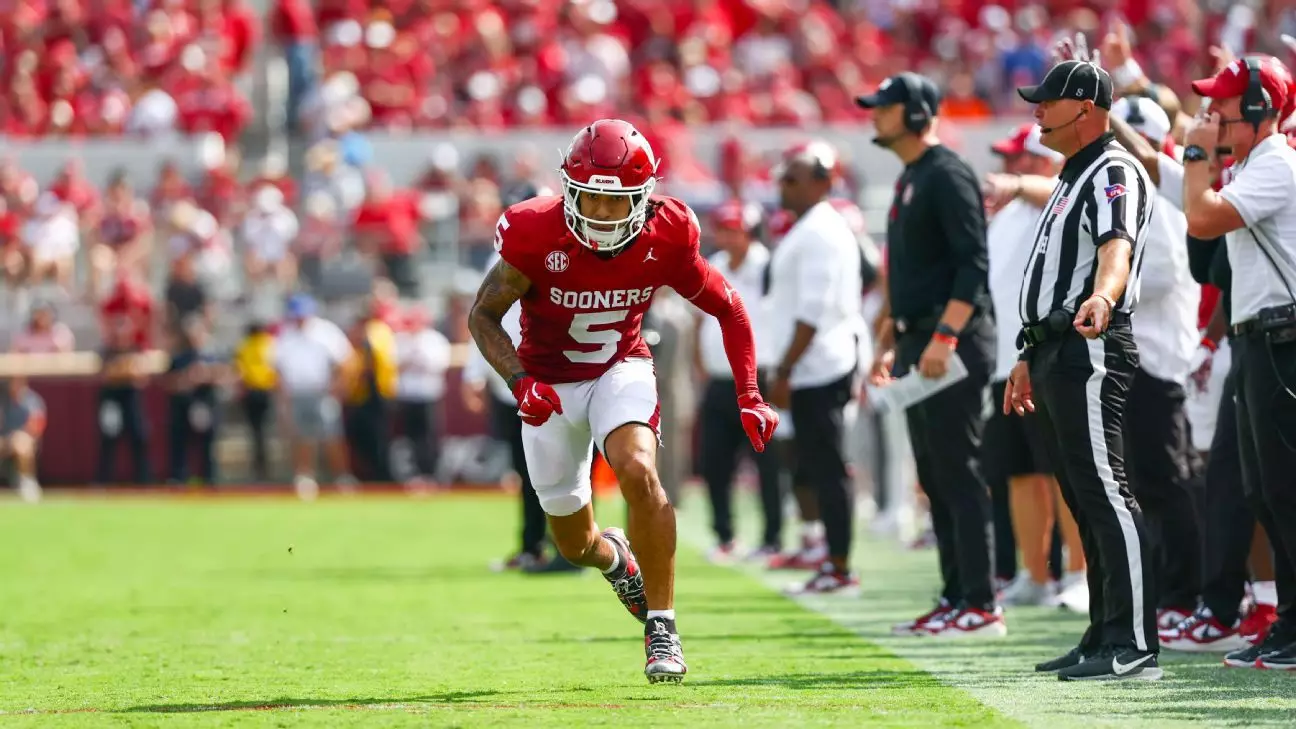In the murky world of college football, where chaos and precision intersect, a recent SEC officiating mistake exposes a deeper flaw—one that goes beyond a missed penalty and strikes at the core of the game’s integrity. When officials fail to recognize an illegal tactic designed to deceive opponents, it not only alters the outcome of a single game but undermines the very foundational principles of fairness and transparency that should define sportsmanship. This incident involving Oklahoma and Auburn’s clash demonstrates how easily systems meant to uphold order can falter, raising urgent questions about the accountability and professionalism of those entrusted with enforcing the rules.
The failure by the officiating crew to identify a clear “hideout tactic”—a deliberate deception used to mislead linebackers, safeties, and referees—represents a systemic lapse, not merely a human oversight. Such tactics, outlawed by NCAA rules, are intended to level the playing field by preventing teams from gaining unfair advantages under the guise of strategic deception. When these tactics slip through the cracks, the implications extend beyond the immediate game, casting doubt on the officiating standards across conferences and, indeed, the sport as a whole. This is not simply about a missed 15-yard penalty; it is about a breach of trust and the erosion of the integrity that should be non-negotiable in competitive sports.
The fact that the SEC publicly acknowledged its misjudgment is both a step forward and a stark indication of the regulator’s flaws. An organization entrusted with the sport’s integrity admitting to such an oversight signifies both humility and a troubling recognition of systemic deficiencies. Yet, this transparency also shines a light on the broader inadequacies: the inconsistency of officiating standards, the potential for bias, and a culture that seemingly tolerates, or at the very least, fails to rigorously address errors of such magnitude. Professionalism demands more than reactive apologies; it requires proactive measures—training, accountability, and an unwavering commitment to the rules—to prevent future failures that compromise the game’s fairness.
The reactions from coaches further reveal the fractures in football’s governance. Oklahoma’s offensive coordinator downplayed the incident as a “tempo play,” a spin that conveniently sidesteps the rule-breaking nature of deception tactics. On the other hand, Auburn’s Hugh Freeze expressed frustration over the apparent inability or unwillingness of officials to intervene, especially after having been explicitly warned about such deceptive tactics earlier in the season. Freeze’s remarks underscore a vital point: players and coaches are left navigating a landscape of inconsistent enforcement, which fosters confusion, frustration, and a sense of injustice. When rules are selectively enforced or inconsistently applied, the sport risks devolving into a spectacle where victory becomes increasingly dependent on officiating rather than skill and strategy.
The SEC’s rare public reprimand of its officials, coupled with promises of increased accountability, reveals a recognition of the problem’s severity. Yet, this move also serves as a cautionary tale about the fragility of the current system. If the conference cannot reliably enforce its own rules, how can fans, players, and coaches trust that fairness reigns? The recent incident echoes previous officiating controversies, highlighting a disconcerting pattern of oversight that tarnishes the sport’s credibility. College football’s allure hinges on its unpredictability, but that should never include questions about whether rules are actually being upheld.
What we are witnessing is an ongoing struggle between tradition and change, control and chaos. The sport’s governing bodies must confront the uncomfortable reality that officiating quality directly impacts the game’s integrity. Marginalizing mistakes as mere oversights does not suffice; instead, systemic reforms—improved training, better oversight, and transparent accountability—must become a priority. If college football continues to accept these lapses as inevitable, it risks losing its standing as a competitive sport rooted in fairness and respect. The integrity of the game demands more than apologies; it demands relentless vigilance and an unwavering commitment to uphold the principles that make football meaningful in the first place.

